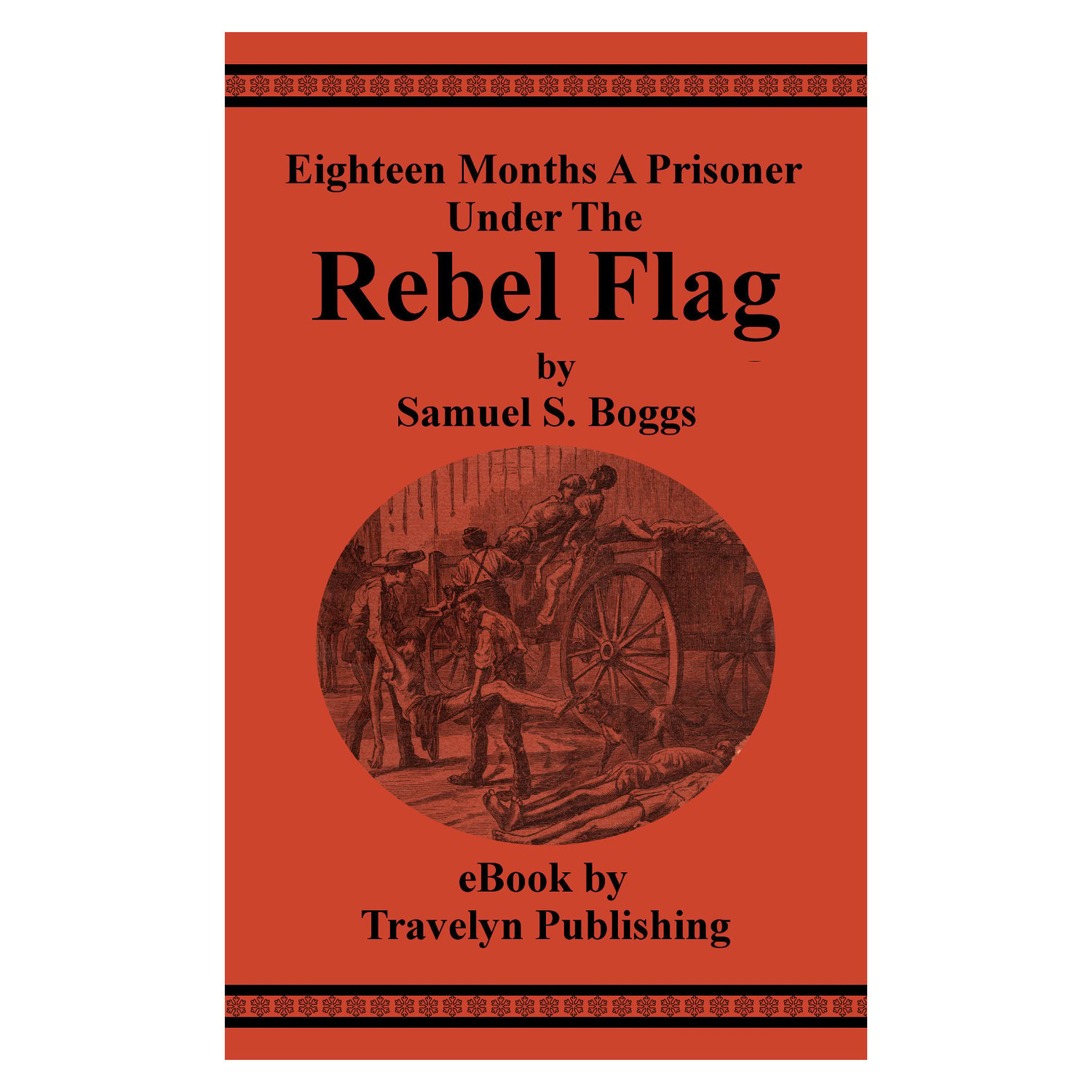
Eighteen Months A Prisoner Under The Rebel Flag
On September 20, 1863, at “about noon,” as the Army of the Cumberland under Maj. Gen. William Rosecrans suffered one of the most significant Union defeats of the Civil War, Sergeant Samuel Boggs of the 21st Illinois Infantry found himself, along with many of his comrades, cut off from retreat, surrounded, and forced to surrender. Thus would begin eighteen months of the most hellish, inhumane, evil treatment imaginable; not through neglect, but by intentional premeditated decision at the highest levels of the Confederacy.
Like so many other writers throughout history, Sergeant Boggs demonstrates convincingly that there is no medium more powerful than the first-person narrative. At times, Mr. Boggs’ words seem to actually weep on the page. At other times, they practically melt the paper they are printed on with their anger and outrage. He absolves the average Confederate soldier of the crimes committed—as he points out, the average Southerner was a dupe, misled by wealthy slave-owners who ran the government and controlled the newspapers. He forgives and forgets when it comes to the Confederate soldier doing the fighting at the front. But he was obviously livid and unforgiving, even twenty two years after the war, toward Jefferson Davis and the ruling class who knowingly used murder and torture as military strategy in a war they had duped others into declaring and fighting.
This is not a long book—25,074 words over 97 pages—but it is a powerful one.
Preparing old books for digital publication is a labor of love at Travelyn Publishing. We hold our digital versions of public domain books up against any others with no fear of the comparison. Our conversion work is meticulous, utilizing a process designed to eliminate errors, maximize reader enjoyment, and recreate as much as possible the atmosphere of the original book even as we are adding the navigation and formatting necessary for a good digital book. While remaining faithful to a writer’s original words, and the spellings and usages of his era, we are not above correcting obvious mistakes. If the printer became distracted after placing an ‘a’ at the end of a line and then placed another ‘a’ at the beginning of the next line (they used to do this stuff by hand you know!), what sort of mindless robots would allow that careless error to be preserved for all eternity in the digital version, too? Not us. That’s why we have the audacity to claim that our re-publications are often better than the originals.
